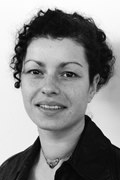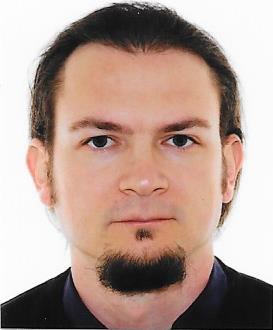Studiare
In questa sezione è possibile reperire le informazioni riguardanti l'organizzazione pratica del corso, lo svolgimento delle attività didattiche, le opportunità formative e i contatti utili durante tutto il percorso di studi, fino al conseguimento del titolo finale.
Calendario accademico
Il calendario accademico riporta le scadenze, gli adempimenti e i periodi rilevanti per la componente studentesca, personale docente e personale dell'Università. Sono inoltre indicate le festività e le chiusure ufficiali dell'Ateneo.
L’anno accademico inizia il 1° ottobre e termina il 30 settembre dell'anno successivo.
Calendario didattico
Il calendario didattico indica i periodi di svolgimento delle attività formative, di sessioni d'esami, di laurea e di chiusura per le festività.
| Periodo | Dal | Al |
|---|---|---|
| Sem. 1A | 24-set-2018 | 10-nov-2018 |
| Sem. 1B | 19-nov-2018 | 12-gen-2019 |
| Sem. 2A | 18-feb-2019 | 30-mar-2019 |
| Sem. 2B | 8-apr-2019 | 1-giu-2019 |
| Sessione | Dal | Al |
|---|---|---|
| Sessione Invernale | 14-gen-2019 | 16-feb-2019 |
| Sessione Estiva (Gli esami sono sospesi durante la Sessione di laurea) | 3-giu-2019 | 27-lug-2019 |
| Sessione Autunnale | 26-ago-2019 | 21-set-2019 |
| Sessione | Dal | Al |
|---|---|---|
| Sessione Estiva | 8-lug-2019 | 13-lug-2019 |
| Sessione Autunnale | 4-nov-2019 | 9-nov-2019 |
| Sessione Invernale | 30-mar-2020 | 4-apr-2020 |
| Periodo | Dal | Al |
|---|---|---|
| Festa di Ognissanti | 1-nov-2018 | 1-nov-2018 |
| Festa dell’Immacolata | 8-dic-2018 | 8-dic-2018 |
| Vacanze di Natale | 22-dic-2018 | 6-gen-2019 |
| Vacanze di Pasqua | 19-apr-2019 | 23-apr-2019 |
| Festa della liberazione | 25-apr-2019 | 25-apr-2019 |
| Festa del lavoro | 1-mag-2019 | 1-mag-2019 |
| Festa del Santo Patrono - S. Zeno | 21-mag-2019 | 21-mag-2019 |
| Festa della Repubblica | 2-giu-2019 | 2-giu-2019 |
| Vacanze Estive | 12-ago-2019 | 17-ago-2019 |
Calendario esami
Gli appelli d'esame sono gestiti dalla Unità Operativa Segreteria Corsi di Studio Scienze Umane.
Per consultazione e iscrizione agli appelli d'esame visita il sistema ESSE3.
Per problemi inerenti allo smarrimento della password di accesso ai servizi on-line si prega di rivolgersi al supporto informatico della Scuola o al servizio recupero credenziali
Per dubbi o domande leggi le risposte alle domande più frequenti F.A.Q. Iscrizione Esami
Docenti
 carlo.callegaro@univr.it
carlo.callegaro@univr.it

Tacconi Giuseppe
 giuseppe.tacconi@univr.it
giuseppe.tacconi@univr.it
 +39 045 802 8655
+39 045 802 8655
Piano Didattico
Il piano didattico è l'elenco degli insegnamenti e delle altre attività formative che devono essere sostenute nel corso della propria carriera universitaria.
Selezionare il piano didattico in base all'anno accademico di iscrizione.
1° Anno
| Insegnamenti | Crediti | TAF | SSD |
|---|
2° Anno Attivato nell'A.A. 2019/2020
| Insegnamenti | Crediti | TAF | SSD |
|---|
| Insegnamenti | Crediti | TAF | SSD |
|---|
| Insegnamenti | Crediti | TAF | SSD |
|---|
| Insegnamenti | Crediti | TAF | SSD |
|---|
Legenda | Tipo Attività Formativa (TAF)
TAF (Tipologia Attività Formativa) Tutti gli insegnamenti e le attività sono classificate in diversi tipi di attività formativa, indicati da una lettera.
Psicologia delle emozioni (2019/2020)
Codice insegnamento
4S007377
Docente
Coordinatore
Crediti
6
Lingua di erogazione
Italiano
Settore Scientifico Disciplinare (SSD)
M-PSI/07 - PSICOLOGIA DINAMICA
Periodo
Sem. 1B dal 11-nov-2019 al 11-gen-2020.
Obiettivi formativi
Il corso ha l’obiettivo di dar conto delle attuali concezioni sulle emozioni e di come problematiche e dinamiche legate al mondo degli affetti vengono oggi spiegate. Scopo principale è facilitare negli/le studenti/esse la conoscenza delle dinamiche affettive e di come le persone le sperimentano e adottano strategie per gestirle e controllarle, a livello individuale e di gruppo. Particolare attenzione sarà rivolta ai processi empatici e di regolazione delle emozioni.
L’insegnamento si pone i seguenti obiettivi formativi specifici:
- sviluppare la capacità di riconoscere le dinamiche affettive che gli individui adottano in ambiti diversi con particolare attenzione agli ambiti dove tali dinamiche si pongono sia a livello individuale, che di gruppo, che di organizzazione;
- sviluppare la capacità di analizzare la funzionalità e la disfunzionalità di tali dinamiche in relazione al contesto entro il quale vengono messe in atto, anche e soprattutto in relazione al ricorso a processi psicologici di regolazione delle emozioni.
Programma
Gli argomenti affrontati durante le lezioni saranno:
Nascita e sviluppo della Psicologia delle emozioni
La prospettiva evoluzionistica-funzionalistica sulle emozioni e le teorie delle emozioni di base
La prospettiva cognitivista sulle emozioni e le teorie dell’appraisal
La prospettiva comunicativa e socio-costruzionistica sulle emozioni
Alcune posizioni teoriche recenti e il concetto di network emozionali
La regolazione delle emozioni: le diverse posizioni teoriche
Il rapporto tra regolazione delle emozioni e impulsività
Tipi di regolazione delle emozioni
Le strategie di regolazione, in particolare reappraisal e ruminazione
Regolazione delle emozioni e ricerca
Regolazione delle emozioni e psicopatologia
Le dinamiche emotive applicate agli ambiti organizzazioni.
Testi per l’esame:
LIBRI
A) Galati D. (2002). Prospettive sulle emozioni e teorie del soggetto, Torino: Bollati Boringhieri. CAPITOLO: 6
B) Caruana F., Viola M. (2018). Come funzionano le emozioni, Bologna: Il Mulino.
C) Matarazzo O., Zammuner V.L. (2015). La regolazione delle emozioni (Seconda Edizione). Bologna: Il Mulino. CAPITOLI: 1, 2, 4, 7.
ARTICOLI
D) Ashkanasy N.M. & Dorris, A. D. (2017). Emotions in the workplace. Annual Review of Organizational Psychology and Organizational Behavior, 4, 67-90.
E) Aldao, A. (2013). The future of emotion regulation research: Capturing context. Perspectives on Psychological Science, 8(2), 155-172.
| Autore | Titolo | Casa editrice | Anno | ISBN | Note |
|---|---|---|---|---|---|
| Caruana F., Viola M. | Come funzionano le emozioni (Edizione 1) | Il Mulino | 2018 | 9788815275233 | |
| Matarazzo O., Zammuner V.L. (a cura di) | La regolazione delle emozioni (Edizione 2) | Il Mulino | 2015 | 9788815259059 | |
| Galati D. | Prospettive sulle emozioni e teorie del soggetto | Bollati Boringhieri | 2002 | 9788833956800 |
Modalità d'esame
Esame scritto con tre domande aperte volte ad accertare la conoscenza degli argomenti riportati nei testi (o parti di essi) e degli articoli in programma. Il voto finale sarà la media delle valutazioni di ciascun quesito espresse in trentesimi. La modalità di esame è la stessa per frequentanti e non frequentanti. Gli studenti dell’anno accademico 2018-19 (e precedenti) che ancora devono sostenere l’esame possono sostenerlo con il programma relativo al loro anno di corso.
In relazione alla situazione derivante dall’emergenza Coronavirus le modalità d’esame sopra riportate vengono modificate per la sessione estiva 2020, in accordo con le indicazioni di ateneo, come di seguito specificato: esame orale in modalità telematica
Tipologia di Attività formativa D e F
Insegnamenti non ancora inseriti
Prospettive
Avvisi degli insegnamenti e del corso di studio
Per la comunità studentesca
Se sei già iscritta/o a un corso di studio, puoi consultare tutti gli avvisi relativi al tuo corso di studi nella tua area riservata MyUnivr.
In questo portale potrai visualizzare informazioni, risorse e servizi utili che riguardano la tua carriera universitaria (libretto online, gestione della carriera Esse3, corsi e-learning, email istituzionale, modulistica di segreteria, procedure amministrative, ecc.).
Entra in MyUnivr con le tue credenziali GIA: solo così potrai ricevere notifica di tutti gli avvisi dei tuoi docenti e della tua segreteria via mail e a breve anche tramite l'app Univr.
Prova Finale
Per il conseguimento della laurea magistrale, disciplinato dall’Art. 35 del Regolamento Didattico di Ateneo, lo studente/la studentessa, dopo aver superato le prove di valutazione relative a tutti i corsi di insegnamento e a tutte le attività formative, così come previsto nel proprio piano degli studi, deve superare una prova/esame finale, cui sono attribuiti 10 CFU.
Ai sensi degli articoli 1 e 3 della legge 8 novembre 2021, n. 163, l’esame finale per il conseguimento della laurea magistrale in Psicologia per la Formazione - classe LM-51 abilita all’esercizio della professione di psicologo. A tal fine il già menzionato esame finale comprende lo svolgimento di una Prova Pratica Valutativa (PPV) delle competenze professionali acquisite con il tirocinio interno ai corsi di studio (TPV), volta ad accertare il livello di preparazione tecnica del candidato/della candidata per l’abilitazione all’esercizio della professione, che precede la discussione della tesi di laurea.
Sono ammessi/e all’esame finale coloro che conseguono un giudizio di idoneità del TPV interno ai corsi di studio.
La PPV è finalizzata all’accertamento delle capacità del candidato/della candidata di riflettere criticamente sulla complessiva esperienza del TPV e sulle attività svolte, anche alla luce degli aspetti di legislazione e deontologia professionale, dimostrando di essere in grado di adottare un approccio professionale fondato su modelli teorici e sulle evidenze. Tale prova è volta, altresì, a un ulteriore accertamento delle competenze tecnico-professionali acquisite con il TPV svolto all’interno dell’intero percorso formativo e valutate all’esito del medesimo. Ai fini dell’accertamento del livello di preparazione tecnica del candidato/della candidata per l’abilitazione all’esercizio della professione, la commissione giudicatrice della PPV ha composizione paritetica ed è composta da almeno quattro membri. I membri della commissione giudicatrice sono, per la metà, docenti universitari iscritti all’Albo professionale degli psicologi da almeno 3 anni, uno dei quali con funzione di Presidente, designati dal Dipartimento a cui afferisce il corso, e, per l’altra metà, membri designati dal Consiglio nazionale dell’Ordine degli psicologi, sentiti gli Ordini professionali di riferimento, iscritti da almeno cinque anni al relativo Albo professionale.
La prova, in modalità orale, è unica e verte sull’attività svolta durante il TPV e sui legami tra teorie/modelli e pratiche professionali, nonché su aspetti di legislazione e deontologia professionale.
La PPV è superata con il conseguimento da parte dello studente di un giudizio di idoneità, che consente di accedere alla discussione della tesi di laurea.
La prova finale (la tesi) può consistere nella realizzazione di una rassegna critica della bibliografia su uno specifico tema, di un progetto di ricerca, di un’analisi critica di un caso professionale, di un progetto di intervento.
La preparazione della tesi, di qualsiasi tipologia scelta, deve comprendere: la definizione concettuale del fenomeno e l’analisi della letteratura, la individuazione del metodo di analisi/studio, una discussione finale, la scrittura del lavoro, seguendo i convenzionali criteri espositivi previsti dal campo disciplinare scelto e/o specifiche eventuali indicazioni di editing.
Sia nel caso del progetto di ricerca che di analisi di caso professionale si richiede la messa in atto di tutte le procedure che garantiscano la adeguatezza etico/deontologica.
Lo studente/la studentessa può proporre una tematica ed una tipologia di tesi finale ad un/una docente, che può accettare di divenire relatore/relatrice. Ogni docente dell’Ateneo può essere relatore/relatrice di tesi finale purché lo studente/la studentessa abbia superato un esame nella disciplina del settore scientifico disciplinare di afferenza del/della docente stesso/a e che il/la docente faccia parte del Collegio Didattico. Il Collegio Didattico può deliberare in deroga a questa norma, qualora se ne rilevi l’opportunità.
In accordo con il relatore/la relatrice la tesi finale può essere compilata e discussa in lingua inglese.
Di norma la commissione può attribuire fino ad un massimo di 8 punti per l’elaborato finale.
Per la determinazione del voto di laurea la media dei voti d’esame è calcolata tenendo conto di tutte le prove, in qualsiasi ambito del piano di studio individuale siano inserite, che diano luogo a un voto espresso in trentesimi. Tale media è ponderata in base al numero di CFU corrispondenti a ciascuna prova.
A tale media sono aggiunti fino ad un massimo di 4 punti, distribuiti nel seguente modo:
- 0,5 per ogni lode fino ad un massimo di tre punti;
- 2 punti: il Collegio Didattico di Psicologia per la formazione incentiva l’internazionalizzazione assegnando 2 (due) punti su 110 aggiuntivi a chi abbia conseguito almeno 2 CFU all’estero;
- 1 punto per la conclusione degli studi nel periodo previsto.
Documenti
| Titolo | Info File |
|---|---|
|
|
pdf, it, 99 KB, 13/10/23 |
|
|
pdf, it, 101 KB, 10/04/24 |
Elenco delle proposte di tesi e stage
Tutorato per gli studenti
Tutti i docenti del Corso di Studio possono fornire una forma di tutorato volta ad orientare e assistere gli studenti lungo tutto il corso degli studi.
Le matricole, gli studenti che si approcciano al tirocinio, gli studenti in uscita e tutti gli studenti che manifestano difficoltà nel loro percorso di studi possono contattare i docenti indicati come tutor del corso di laurea magistrale in Psicologia per la formazione:
- prof. Roberto Burro (Referente);
- prof. ssa Margherita Pasini;
- prof.ssa Margherita Brondino.
Nel quadro del programma di TUTORATO, il Dipartimento di Scienze Umane ha inoltre deciso di utilizzare l’esperienza di alcuni iscritti al Dottorato di Scienze Umane per offrire un supporto che sia il più vicino possibile a chi frequenta il CdS magistrale, sulla base della loro diretta esperienza.
Tali Tutor studenteschi forniranno un servizio di orientamento, sia in ingresso (vòlto a favorire un migliore inserimento nei Corsi di Studio, ovviando alle difficoltà e agli ostacoli che il passaggio dalla Triennale alla Magistrale, inevitabilmente comporta), sia in itinere, così da offrire un servizio di sostegno che sappia adeguatamente interpretare e rispondere alle esigenze di formazione e professionalizzazione di chi frequenta il CdS.
Tra i compiti e le attività previste vi sono:
- Supporto ad indagini sugli iscritti al CdS, volte a individuare potenziali criticità nel percorso, in particolare:
- indagine sulle carriere;
- indagine sulla presenza di studenti/esse con esigenze specifiche (ad esempio fuori sede, stranieri, lavoratori/trici, diversamente abili, con figli piccoli);
- Individuazione e realizzazione di possibili interventi di supporto agli studenti/esse che manifestano difficoltà nel percorso, anche online.
- Attività di sportello per l’accompagnamento, aperto a tutta la componente studentesca;
- Avvio del monitoraggio dell’efficacia dell’intervento di tutorato (analisi della situazione iniziale e della situazione post intervento);
- Orientamento in itinere per gli studenti del primo anno.
Il Tutorato è volto ad accompagnare gli studenti nel corso degli studi, a renderli attivamente partecipi del processo formativo e a contribuire al superamento delle difficoltà individuali.
Per l'a.a. 2023-2024 è stato nominato come Tutor per il CdS magistrale in Psicologia per la formazione:
Mattia Zene: mattia.zene@univr.it
Per esigenze particolari prendere appuntamento con il tutor tramite mail istituzionale.
Gestione carriere
Esercitazioni Linguistiche CLA
Guide operative per lo studente
In questa pagina lo studente potrà trovare delle guide operative, utili al completamento del proprio percorso universitario, che vanno ad integrare quanto già indicato nei Regolamenti didattici del CdS.
1- Qui si possono reperire indicazioni in merito ai riconoscimenti di carriera, ai crediti a libera scelta per lo studente e alle certificazioni linguistiche per gli studenti iscritti ai CdS afferenti al Dipartimento di Scienze Umane a partire dalla coorte 2022 (le indicazioni contenute nella Guida entrano in vigore dal 29 marzo 2023 e sono retroattive solo se a favore dello studente);
2 - Qui si possono reperire indicazioni in merito ai riconoscimenti di carriera, ai crediti a libera scelta per lo studente e alle certificazioni linguistiche per gli studenti iscritti ai CdS afferenti al Dipartimento di Scienze Umane a partire dalla coorte 2014 (le indicazioni contenute nella Guida entrano in vigore dal 29 aprile 2020 e sono retroattive solo se a favore dello studente);
3 - Qui si possono reperire indicazioni in merito al conseguimento dei crediti a libera scelta (Crediti D e F) per gli studenti iscritti ai i CdS afferenti al Dipartimento di Scienze Umane fino alla coorte 2013 (le indicazioni contenute nella Guida entrano in vigore dal 23 febbraio 2011 e sono retroattive solo se a favore dello studente).
Documenti
| Titolo | Info File |
|---|---|
|
|
pdf, it, 325 KB, 02/05/23 |
|
|
pdf, it, 212 KB, 02/05/23 |
|
|
pdf, it, 131 KB, 02/05/23 |
Stage e Tirocini
Lo/a studente/essa tirocinante curricolare sarà chiamato/a svolgere, presso gli Enti che lo ospitano, attività che prevedono competenze associate alla figura professionale dello Psicologo, in particolare lo Psicologo per la formazione, e nello specifico:
- attività di progettazione, realizzazione e valutazione dell’efficacia di interventi di percorsi formativi, nonché attività volte alla facilitazione dell'apprendimento nel ciclo di vita, in particolare in contesti organizzativi;
- attività che prevedano l’analisi delle relazioni interpersonali, dei contesti organizzativi e delle pratiche lavorative;
- attività che prevedano la gestione di processi organizzativi complessi, per lo sviluppo e la valorizzazione delle persone all'interno delle organizzazioni;
- attività di progettazione, realizzazione e valutazione di interventi psicologici volti all’orientamento scolastico e professionale;
- attività che prevedono l’uso di tecniche e strumenti di analisi delle situazioni e dei contesti, di raccolta di informazioni, e di interpretazione dei risultati, principalmente in relazione ai contesti organizzativi.
Tali attività si svolgono in Aziende ed Enti accreditati presso l’Ateneo. Lo/la studente/essa sarà seguito da un tutor accademico e da un tutor aziendale. Alle attività di tirocinio sono attribuiti n. 9 CFU (pari a 225 ore).
Linee Guida per lo Svolgimento dei Tirocini Curriculari
- Tutte le informazioni in merito agli stage per futuri studenti sono disponibili alla pagina Stage e tirocini.
- Tutte le informazioni in merito agli stage per studenti iscritti sono pubblicate in MyUnivr - come fare per - stage e tirocini.
- Tutte le informazioni in merito agli stage per le aziende sono disponili alla pagina Stage e tirocini per azienze.












